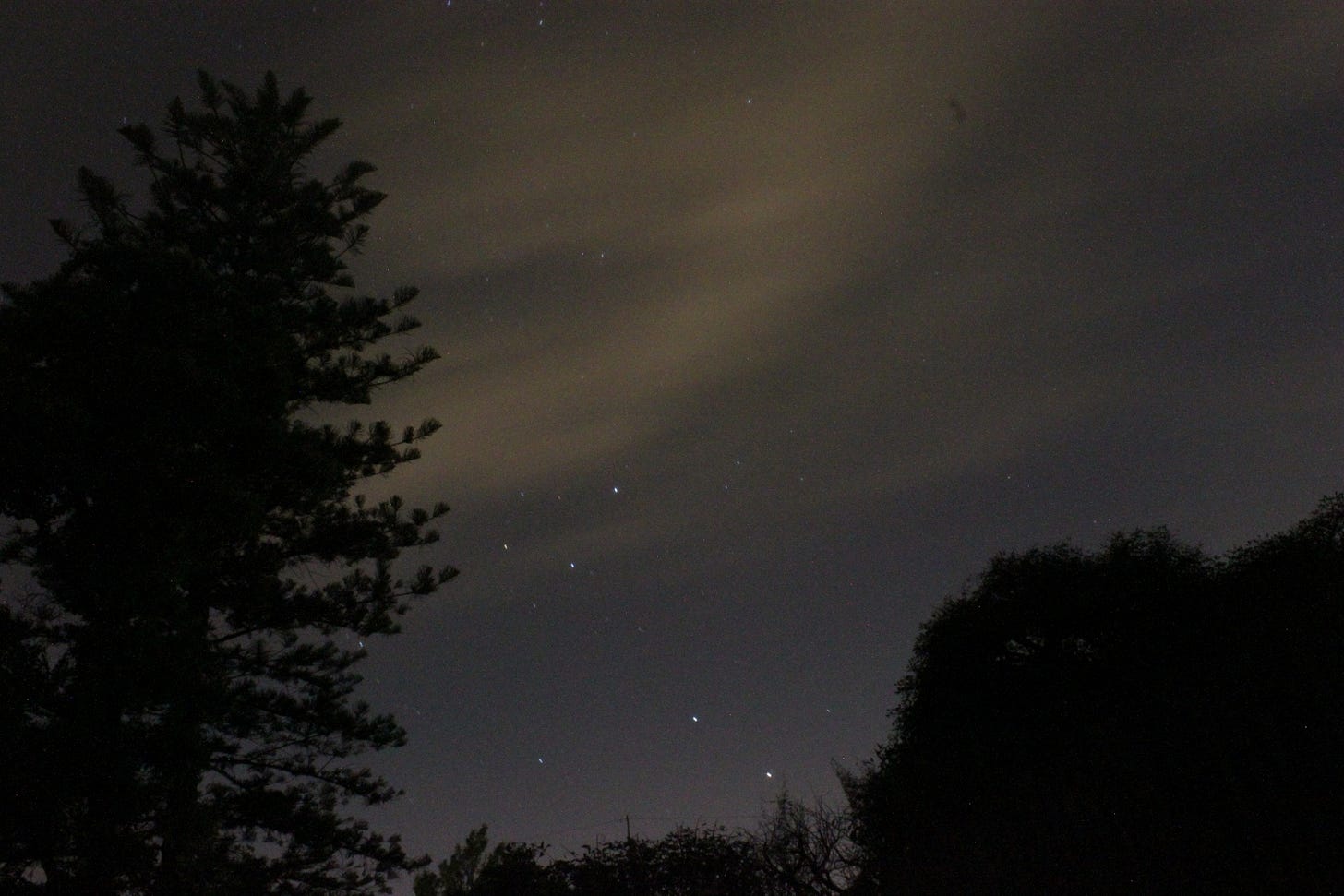Southern Cross - a poem
So, this hasn’t happened in some time, and there might now be no-one listening, but after a lengthy hiatus I have written an original poem.
I have a good friend who has walked through a dark valley, and I wrote this poem in response to a story they’ve shared.
(I've put some explanatory notes at the end.)
Southern Cross
It’s been said that only when it is dark enough can you see the stars.[1]
And so, when the light went out (by the front door), He who made all lights showed you a star.
A star that would flare when you needed most to see.
Since He knows the dark, how deep forsaken goes, the star was a cross.
A cross – where all the dark was snuffed out by the Son.
That cross now shows you, in wood and star, where He is and how He cares in the dark.
Blazes for you till the morning.
© Alison Payne
[1] I think this was originally said by Thomas Carlyle and later quoted Martin Luther King.
One question people often ask in suffering is where is God in it. And the answer to that, I believe, is that he's right in the middle of it hanging on the cross. So that is the idea behind verse six. I am using 'flare' in the sense of suddenly appearing or catching attention, and 'blazes' to capture both burning brightly and also marking out a path or route. I'd originally written 'dark was sent out' to throw back to 'went out' above it, but the subject of the poem thought that was unclear and suggested 'snuffed', so they got a word in. And hopefully it's clear what is meant by the morning (I do so love the verse 'until the day dawns and the morning star rises in your hearts' 2 Peter 1:19).
(If you've been visiting here a long time you will remember that a friend wrote me a poem out of story I shared with them once upon a long time ago, which I thought it was a beautiful thing. I guess you could say it's a gesture of 'active listening'. Though the poem I originally intended to write for this friend was around a different metaphor they described, but this is the poem they ended up with, because that's how the writing of poems tends to happen.)


